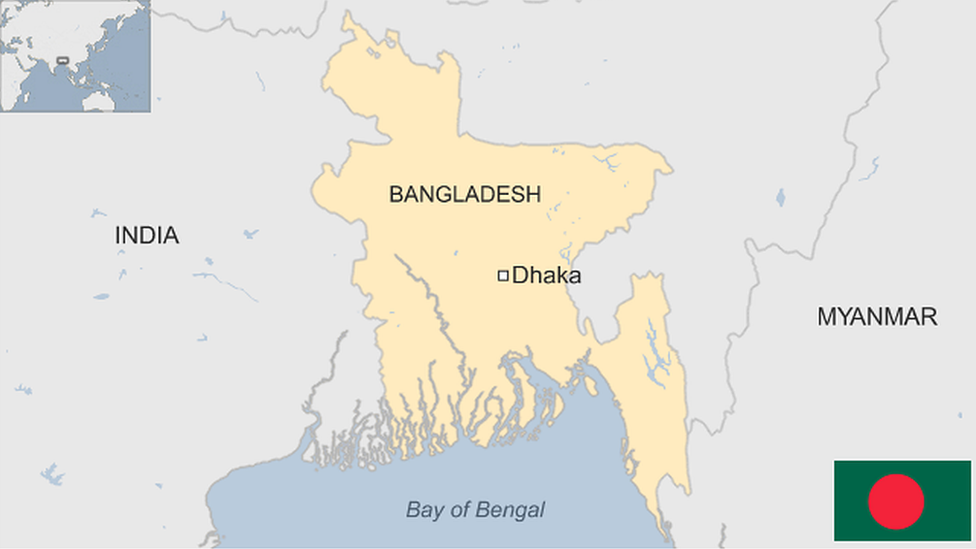Clashes over Bangladesh protest leave 27 dead
- Published
Clashes between police and protesters began on Sunday and continued into Monday
At least 27 people have been killed and dozens hurt after police and Islamist protesters clashed in Bangladesh.
Police used stun grenades and rubber bullets to disperse a Sunday protest organised by the group Hefazat-e Islam in the capital Dhaka.
But there were later running battles throughout Sunday and into Monday in areas across the city.
Tens of thousands of Islamists had gathered in the city to call for stronger Islamic policies.
Rioters went on to set fire to shops and vehicles.
The dead in Dhaka included at least two policemen, according to officials.
At least five people were reported killed in clashes in the south-eastern city of Chittagong and two in the coastal district of Bagerhat.
'Very aggressive'
Central Dhaka was reported to be calm following a day and night of violence.
Police said a ban had been imposed on all rallies and protests in the city until midnight on Monday to prevent a repeat of the clashes.
Thousands of Islamist activists were seen fleeing the Motijheel area of Dhaka on Sunday as police moved in to take control of the area.
Having secured the business district by the early hours of Monday, the police said officers were searching for protesters hiding in nearby buildings.
The area around the city centre's largest mosque had turned into a battleground as police reacted to stone-throwing rioters with tear gas, stun grenades, rubber bullets and truncheons.
Clashes also broke out in Kanchpur on the south-eastern outskirts of Dhaka.
There were varying reports of the number of dead and injured, but police have confirmed that two officers and a member of the security forces were among the dead in Kanchpur.
One witness who watched events unfold from a rooftop in central Dhaka said the demonstrators "were very aggressive, some people were throwing stones and the situation quickly become violent... the police had no option but to respond".
"Rioters vandalised markets and set fire to bookshops where the Holy Koran is sold. Thousands of Koran and religious books burned. They also attacked the ruling party's political office and national mosque," he told the BBC.
The bank employee, who asked not to named, said many people in Dhaka were angry about the violence, particularly as the city is still mourning the recent loss of more than 600 workers in a building collapse.
"I am Muslim and 90% of the population is Muslim too, but the protesters do not represent our views," he said.
'Hang atheists'
On Sunday, crowds of protesters blocked main roads, isolating Dhaka from other parts of the country.
Dhaka's Daily Star newspaper reported that the group had hired at least 3,000 vehicles, including buses, lorries and minibuses, to bring demonstrators into the capital, while others travelled there by train.
Chanting "Allahu Akbar!" ("God is greatest!") and "One point! One demand! Atheists must be hanged", the activists marched down at least six main roads as they headed for Motijheel, AFP news agency reported.
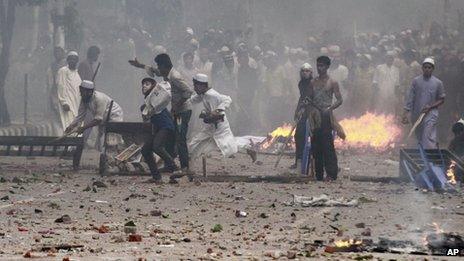
At least 10 people have been killed and more than 60 injured in continuing clashes between police and Islamist activists in Bangladesh's capital Dhaka
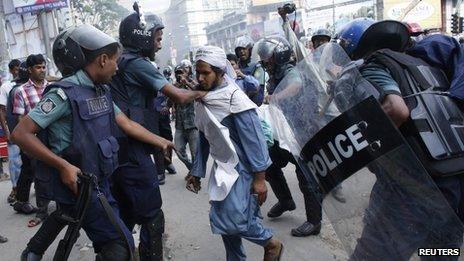
The clashes came as hundreds of thousands of Hefazat-e-Islam supporters held a rally in Dhaka to demand a greater focus on Islamic values
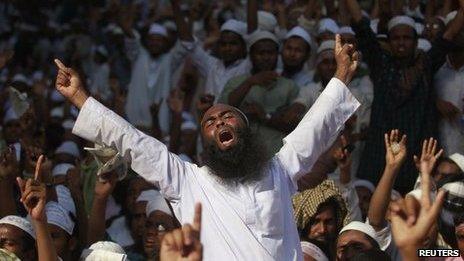
The group also rallied in Dhaka last month, calling for the death penalty for those who insult Islam, as well as the imposition of stricter Islamic education
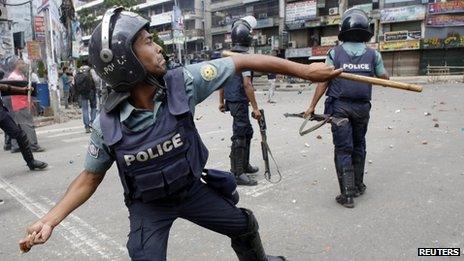
Police used tear gas, rubber bullets and, in this instance, a broken piece of brick against protesters
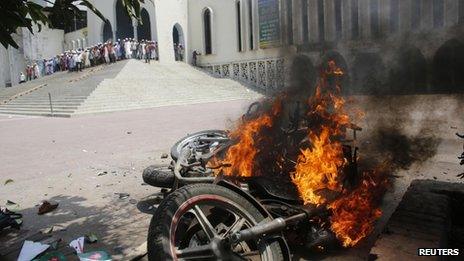
The government, which describes Bangladesh as a secular democracy, has rejected the demands of the group
Hefazat-e Islam - a coalition of around a dozen Islamist organisations - is seeking to impose a stricter form of Islam on Bangladeshi society.
The movement, which draws its strength from the country's madrassas, or religious schools, has issued a 13-point charter of demands, including greater segregation of men and women.
Its opposition to a national development policy for women has angered women's groups.
The government, which describes Bangladesh as a secular democracy, has rejected Hefazat-e Islam's demand for a new law on blasphemy.
Prime Minister Sheikh Hasina said current legislation was adequate.
Muslims make up nearly 90% of the country's population, with the rest mostly Hindus.
- Published6 May 2013
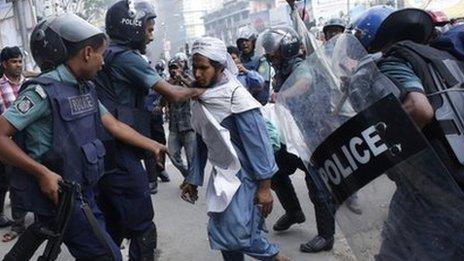
- Published6 May 2013
- Published30 April 2013
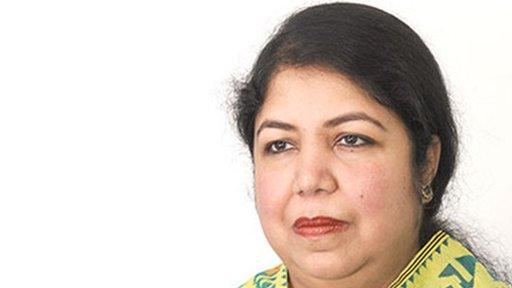
- Published8 April 2013
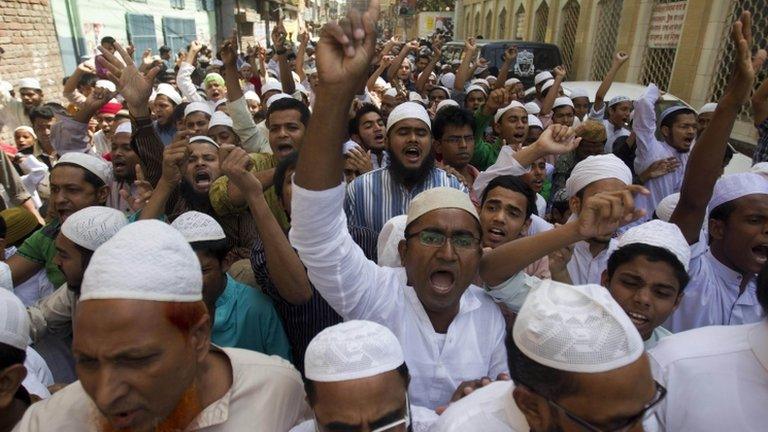
- Published6 April 2013

- Published10 March
